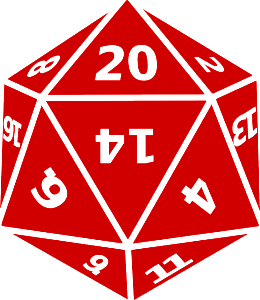So many subjects have gone from esoteric nerd culture to blockbuster in the last several years, expanding the geek community and inciting all sorts of growing pains. From comic book culture to LARP re-branded, crowdfunding, digital publishing, and the Internet have become appropriate agents of change. Comic book and convention culture has become fantastically inclusive. For better or worse, these evolving aspects are now magnified for mainstream consumption. This marriage of the geeky and the mainstream has encountered its first big spat: Gamergate.
Those entrenched in the nuances of geek culture knew about it a while ago. Those with a talent for scoping out a story could sense the potential of a mainstream battlefield – but how many were willing to jump into the storm? I wasn’t. Like many in geek culture, this has come to affect my life in a way much bigger than whether video games will be inclusive of people like me. Whether I avoid the topic or bring it up, it’s at the very least a nuanced aspect of any geek-related discussion I have.
I do geeky things. I work at a gaming company. It’s an unavoidable part of life, compounded by the realization that every time I take a stand and say women should have a place in video games, it opens some huge political agenda and it’s assumed I believe in all of those women-are-better-than-men ideals that people negatively (and inaccurately) associate with feminism.
It’s overwhelming, daunting, and exhausting, and it’s affected friendships – but discussing inclusion and speaking out against intolerance will hopefully improve the community.
I can participate in a hundred Facebook threads about it. I can avoid the #Gamergate hashtag entirely – which also has me feeling guilty, by the way, because who runs a geek website focused on gender equality while actively avoiding this topic that is now in the hands of the mainstream?
Someone who sees what others are going through. Someone who has watched what happened to Felicia Day after a heartfelt post.
Someone Who Knows People Who Feel Scared
Everyone wanted to write a video game review. Now, not so much. Even some notable female writers want nothing to do with the subject of video games considering the current climate. At New York Comic Con, I asked Brianna Wu how to handle this kind of thing in a panel – and when I asked my question, even in a room full of compatriots – I was afraid to utter the name of my own publication for fear of retribution. (Brianna’s advice was to reach out to other members of the community, which is great advice and something I have mostly done privately.)
The thing is…even if you keep Gamergate-related debates to friends-only posts and discuss it only with people you trust, the discussion is so large that it will find you. I’m not a researcher, analyst, or academic. I’m just someone who watched Anita Sarkeesian’s videos before this debate was a thing. I agreed with some of the things she said. I disagreed with some of the things she said – but in the eyes of others, that doesn’t matter now. This topic has found me even as I’m hesitant to write and publish this very article, but men (and women, but mostly men) constantly express that these fears and threats are silly or only find women who seek them out.
And that’s not true.
The Myth of the Unicorn
Honest discussions about these issues are the most productive. Many of the remarkably frank conversations are those I’ve had about gender in geek culture involve my husband, also a lifelong geek and a contributor to this site. Rick admits that he doesn’t always get where I’m coming from, and sometimes I feel the same way, but I am fortunate to have an open path to how one man views these issues.
Last night we discussed Gamergate and we quickly cut to the center of the issue. Having separately read and debated related issues online, it was time for us to discuss the heart of this issue, including our own personal experiences about it.
He revealed to me that when he was younger, women who gamed really were like unicorns (I recognize that male sentiment rather well – as would anyone who has been a woman in a comic book store). He did not encounter a lot of girls who gamed, as far as he knew, and that’s a valid experience and observation. All I could think about was how I was the second on my block to get an original NES and how I would game with the boys in my neighborhood. Like most girls I knew, I had sleepovers, invited my female friends over, and binged on video games.
Essentially, Rick and I were doing similar things in our older child/pre-teen years. He just legitimately had no idea that girls were participating in the same hobby. He is (or was) under the impression that my background in playing Super Mario soon after its US release is some kind of exception to the rule. So to him, that probably makes it look like women in gaming is some kind of crazy new thing…when in fact, many women have been lifelong video gamers.
Of course the other difference is what females and males of the Nintendo generation got out of video games. I ended up veering more towards RPGs and even running online text-based games because I wanted something more immersive – and because I wanted to play a character who did more than wait in a castle to get saved. That means it’s very frustrating to me when I make a comment about inclusion and male gamers tell me ‘well make your own game.’ That’s the thing – I have. I’ve spent years of my life participating in, running, and influencing RPGs of the text-based and live action sort. I’m not really a programmer and I don’t want to be – but if you’re keeping score, I’ve done my part here.
This is something that my husband seems to respect. Why can’t other people?
Women Run Social Media
I know…eavesdropping in a cafe is weird and creepy, but it inadvertently happens when you’re there working on your laptop and other people are talking. The other day, I heard a conversation between an author and her editor (both women). The editor was providing excellent guidance and advice to the author, including an explanation of how writers are expected to maintain their online presence and market themselves as brands. But she let the author in on a secret: “Women run social media.”
Often conditioned to focus our lives on the fact that maintaining relationships and communicating effectively determines our value to society, it kind of makes sense that the world of social media, online advertising, and digital marketing has provided opportunities for women to excel. This certainly applies to me, and I really enjoy taking something that could have been bad (‘you’re only worth something if your connection to others is valuable’) and turning into something awesome (‘hey, we’ll pay you to maintain valuable connections and you’re a valuable member of our team because you’re good at that’).
In digital publishing in the first world, it does seem to me like women have an equal chance to participate in discussion. If most people have access to computers and mobile technology, the opportunity is equal. Yes, we still come to the digital table with all sorts of real-world baggage (‘I should probably wait to tweet until I pass this gauntlet of guys staring at me so I can be aware of my surroundings’), but the opportunity to present our thoughts, feelings, and marketing messages is equal. And I see women taking full advantage of it.
For me, this is the real crux of the Gamergate discussion. Everyone with digital access has a say, and that’s awesome. But when one group has an equal say in digital space without being equally represented in video games and other forms of media, the desire for more representation is bound to be expressed – and in this case, companies are hopping in because there’s a huge potential for an expanded market in certain realms. (“Guardians of the Galaxy” saw a 44% female audience at the box office, for example.)
The problem with Gamergate is that it’s well beyond a discussion.
Yes, in the real world there are men who will rape you, hit you, subject you to cat calls, and emotionally abuse you. Will the majority of the men in a first world country do that, or even want to do that? Of course not – and it’s really encouraging to me that many of my feminist friends are male. Most women get that most men are not jerks and do not treat fellow humans of any stripe like trash, which is why it’s refreshing when men use their power and privilege positively in the conversation on gender equality.
How Do We Move Forward?
The geek community is wounded by Gamergate, even though a lot of healthy and necessary discussion has come out of it. It’s apropos that a culture founded by misfits has our wounds blatantly exposed on social media for all to see – and it’s okay to admit that it’s terrifying, too.
One thing gaming has taught me is that it’s not very constructive to present a problem without a solution. Here are some of the things I have done and hope to do more of to move forward positively:
- Spend consumer dollars wisely. Now that there are options in entertainment that feature people of color and females as protagonists, I’ll choose those options instead of the alternatives. That’s not to say that there’s anything wrong with a narrative featuring a white male protagonist – I’ll still enjoy those stories, too – but I’ll make the conscious effort to choose diversity.
- Spend time wisely. When I’m not online and I have the chance to socialize, I’ll continue to spend time and money on activities that are inclusive and build my self-esteem, like LARPing.
- Talk about it. There’s nothing worse than ranting with no conclusion. How will I ever understand an opposing view? How will I learn about the experiences of others, and how will they learn about mine? Once the wounds are healed, the dialogue needs to remain open so more people feel safe.






